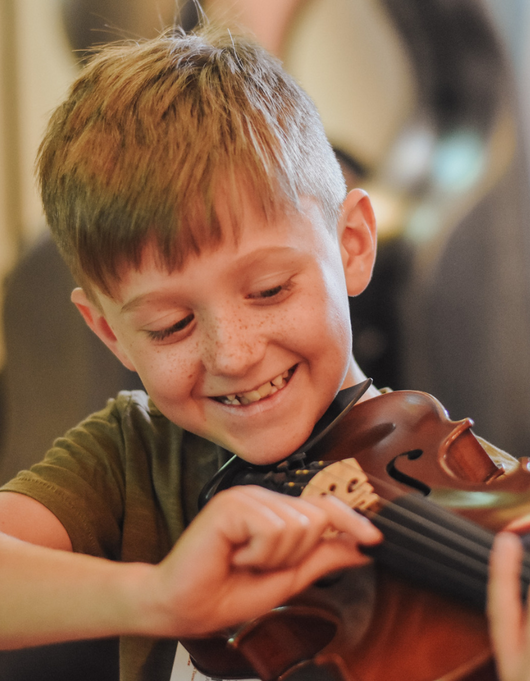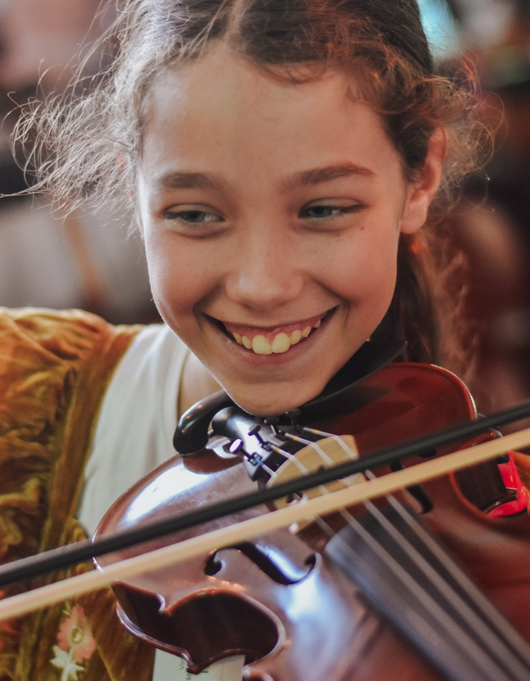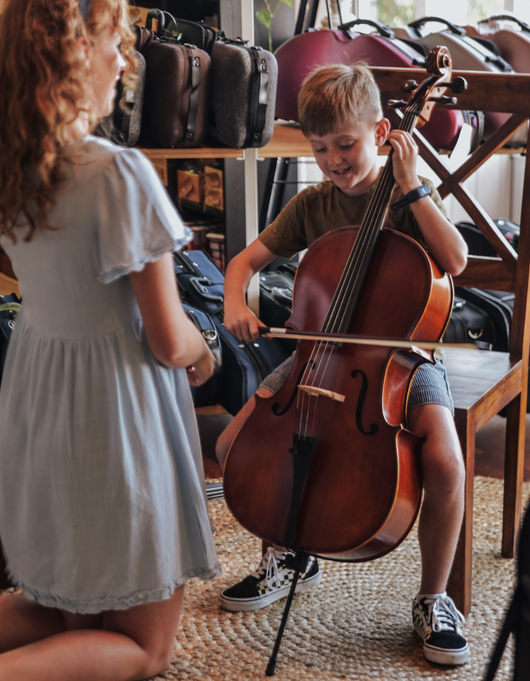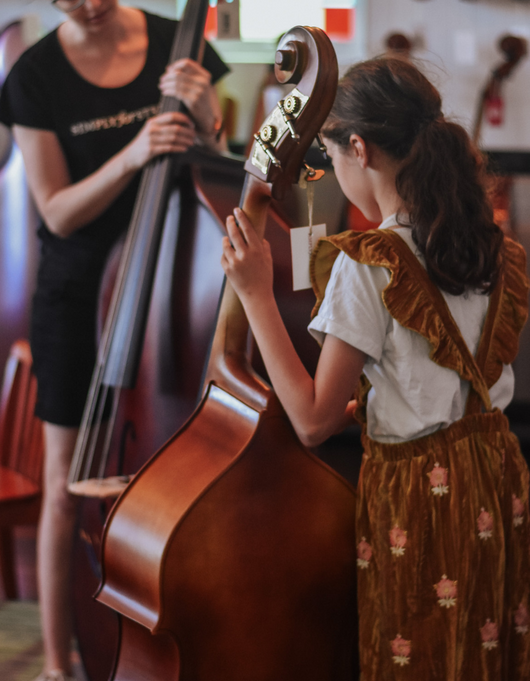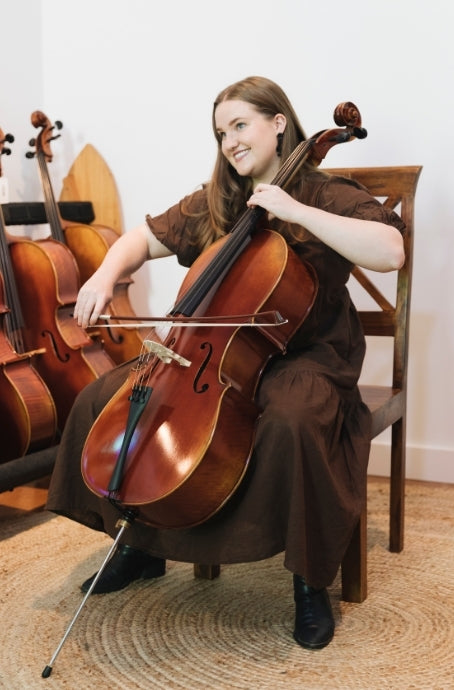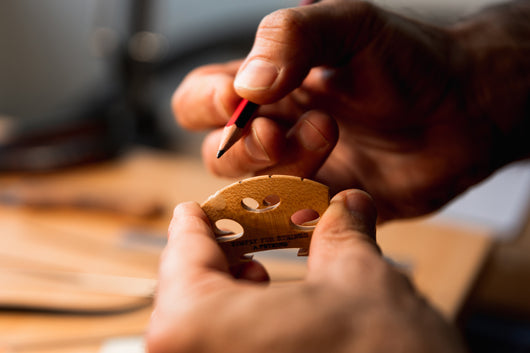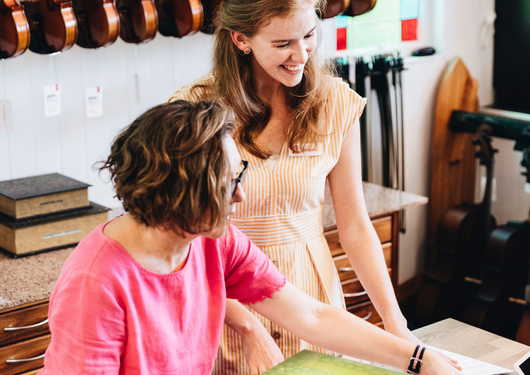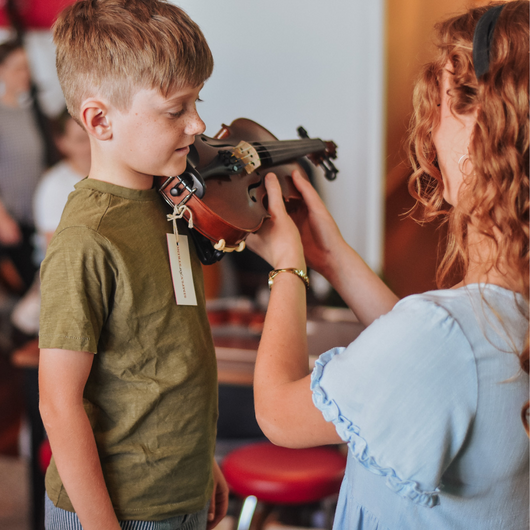We are delighted to introduce Lillo Salerno, a master violin maker whose craftsmanship and dedication to quality have made his instruments an exciting addition to our collection at Simply for Strings. In this exclusive interview, Lillo Salerno shares his journey into violin making, the ethos behind his workshop, and his vision for the future of this timeless art form.
Lillo Salerno is from Sicily, Italy but now has his workshop in Pforzheim, Germany. As he is a graduate from the Cremona School of Violin Making as well as the Mittenwald School, his work shows influence from both Cremonese and German traditional schools of violin making. All Salerno instruments are handcrafted using carefully selected European tonewoods. Lillo Salerno's customers include musicians from renowned orchestras, students from conservatories and very well-known music professors worldwide.

Pictured: Lillo Salerno and his lovely dog, Gina!
What inspired you to become a violin maker?
As a child, I had a deep affinity for nature, crafts, and music. One day, I watched a documentary about Cremona and Stradivari on TV. Inspired by what I saw, I decided to visit Cremona and explore a few violin shops. This experience led me to enroll at the I.P.I.A.L.L Antonio Stradivari violin-making school in Cremona in 1998. I graduated with my diploma in 2002. During my time at the school, I attended craft lessons and spent my evenings at home practicing violin making, often working late into the night.
After completing my studies in Cremona, I returned to Germany. Two years later, I obtained my German violin-making diploma from the Mittenwald violin-making school. Following years of apprenticeships in both Italy and Germany, I further expanded my expertise in restoration at renowned violin-making workshops.
When was the Lillo Salerno workshop founded, and what were the early years like?
The Salerno workshop was founded in 2002 in Pforzheim, a city renowned for its jewellery making and known as the gateway to the Black Forest. In the beginning, until 2016, our focus was solely on repairing stringed instruments and trading both old and new ones.
Since 2016, I have had the desire to build new instruments again, and this is how the workshop line came into being. Alongside this, I also craft very high-quality master violins.

Pictured: Master Lillo Salerno Violin based on a Guarneri del Gesú Model Kochanski (left) and Lillo Salerno Workshop Line Violin (right)
What types of tonewoods do you use in your instruments, and how do they affect the sound quality?
For the workshop line, I use well-dried and carefully selected tonewoods. For the master instruments, I only use very old tonewoods, aged between 50 to 100 years, and selected with great care. Excellent sound quality begins with the selection of the wood.
What are some of the most challenging aspects of making a violin?
One of the main challenges in making a violin is achieving the specific sound you envision for the instrument. Consistently producing high-quality sound is a demanding task.
How do you ensure consistency and quality of the instruments made in your workshop?
Ensuring consistently high sound quality involves rigorous research and testing. Years of experience and a deep understanding of both Italian and German violin-making traditions define the excellence of my master and workshop instruments.
What advice would you give to someone interested in pursuing a career in violin making?
To become a violin maker, you must have patience. Never give up, even when the path is rocky and difficult in the beginning.
What do you find most rewarding about your work as a violin maker?
The most rewarding aspect of my work is bringing joy to people through the sound of my instruments or my restoration efforts.
How do you see the future of violin making evolving, and what role do you envision for the Lillo Salerno workshop in that future?
I believe that violin making has a promising future. A machine cannot replace a person’s emotions, feelings, and soul. Every day, a violin maker experiences both beautiful and challenging moments, and these moments and memories accompany the maker as they build their instruments. The Lillo Salerno workshop will continue to embody this tradition, preserving the artistry and emotional depth of violin making.



